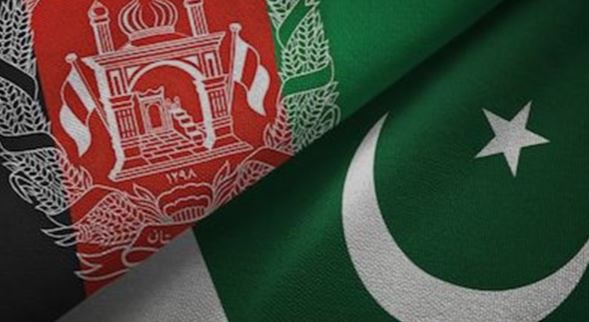KABUL – The Afghan Ministry of Defense accused Pakistani military aircraft of violating Afghan airspace and bombing a refugee camp in the Barmal district of Paktika province, resulting in multiple casualties and injuries.
The airstrikes reportedly targeted four locations. Three of the strikes aimed at TTP’s media cell chief Muneeb Jatt, Omar Media, his deputy Abu Hamza and a commander of their own faction Akhtar Muhammad Khalil. At the time of the strikes, the TTP was reportedly holding a large gathering in Barmal.
The sources suggested that the attacks appear to be a response to the surge in TTP’s terrorist activities in Pakistan.
The latest airstrikes occurred on the same day Pakistan’s special envoy Muhammad Sadiq was in Kabul engaging with Taliban officials in efforts to thaw relations and find political solutions to security issues.
A few hours after the strikes, Sadiq held discussions with Afghan Deputy Prime Minister for Political Affairs Mawlawi Abdul Kabir. During his diplomatic talks with Afghan officials to seek a resolution to the TTP issue, Pakistan’s chargé d’affaires was summoned and handed a protest note.
However, no official statement was issued by Pakistan.
The Afghan Ministry of Defense, through its official account on X (formerly Twitter), made three posts regarding the alleged attacks, which were retweeted by spokespersons Inayatullah Khwarazmi and Zabihullah Mujahid.
According to these tweets, Afghanistan condemned the attacks, labeling them as acts of aggression and violations of international laws. It warned Pakistan that such actions are not solutions to the problems. Afghanistan considers the defense of its territory an inalienable right and vowed to respond to this action.
The Afghan Ministry of Foreign Affairs stated on X that such irresponsible actions would inevitably have consequences.
Paktika, a border province along the Durand Line, lies in eastern Afghanistan and shares its boundary with three Pakistani districts: Zhob in Balochistan and South Waziristan and North Waziristan in Khyber Pakhtunkhwa. South Waziristan was also the site of the December 21 attack on a military post, which left 16 security personnel martyred.
Pakistan blamed that attack on the militants crossing the border.
Pakistan maintains that the surge in militancy is due to the banned TTP using Afghan soil, a situation the Afghan government has failed to control. The militants from across the border reportedly carry out attacks on Pakistan’s security forces, Chinese nationals and Pakistani civilians.
According to the Pakistani officials, the evidence has repeatedly been provided to Afghanistan, but the Taliban administration failed to address their concerns. As a result, TTP factions operate with greater freedom, planning attacks against Pakistan from Afghan soil.
A senior security official stated that Pakistan resorted to action within Afghan territory as a last resort.
“We have repeatedly informed the Afghan government, with evidence, that their territory is being used against us,” the official said.
The Pakistan Center for Conflict and Security reports that November witnessed the highest number of attacks this year, with 240 fatalities including 70 security personnel.
The analysts in Pakistan believed that the Afghan government lacked the capacity to take decisive action against such threats targeting Pakistan.










